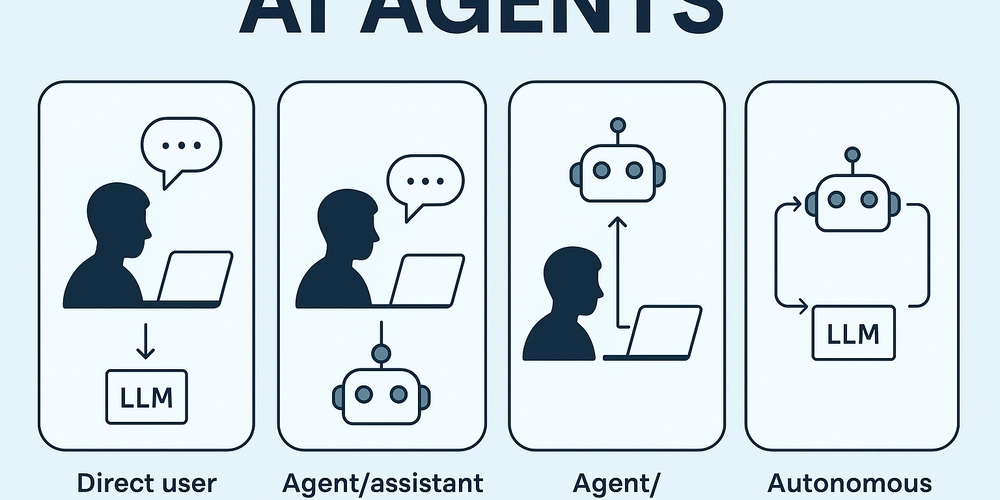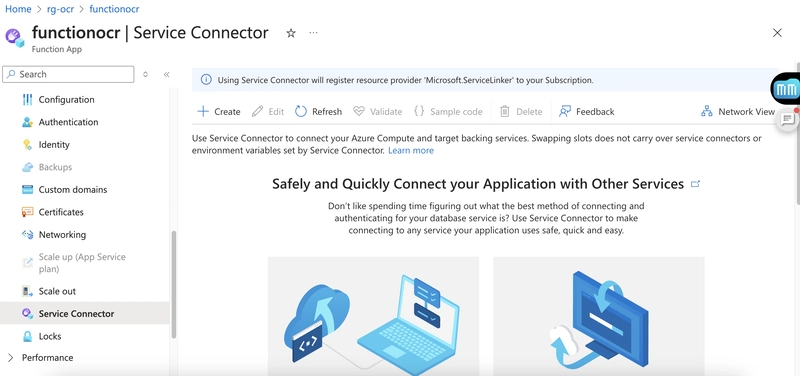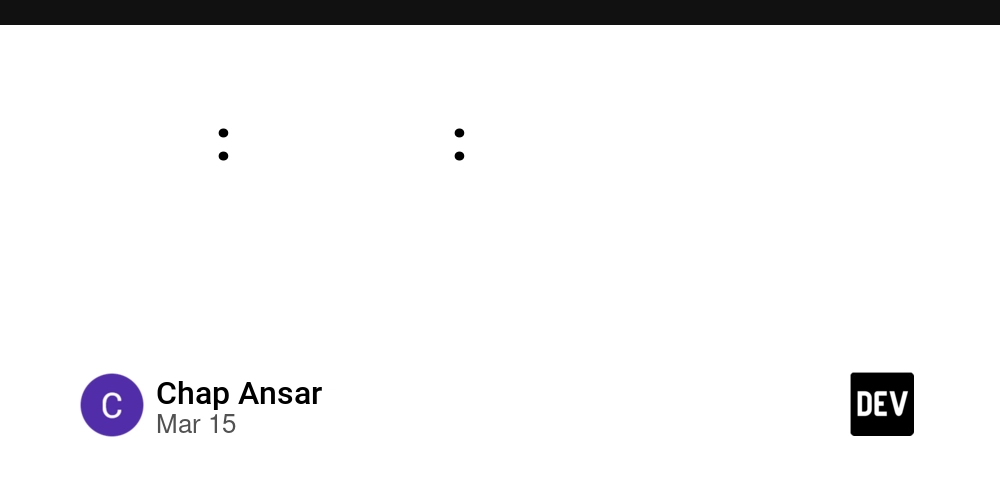It's Late To Do It, But If You C...
Once upon a time, in the golden age of programming, a language was born. Not fancy, not glamorous—just brutally efficient. That language was C. It was fast, powerful, and did the job without sugarcoating anything. But now? People laugh. "Why learn C? It’s old, outdated, and Python can do it with half the effort!" And yet, C refuses to die. Yeah, it’s not as trendy as Python, not as web-friendly as JavaScript, and definitely not as "job market hot" as some new framework dropping every six months. But C is like that old-school hacker who doesn’t care about the latest trends—because they built the machine you're coding on. The Ghost in the Machine Look around. Every fancy new programming language? Borrowed from C. Most of them? Built in C. And while we’re out here debating which framework to learn next, C is busy running the world behind the scenes. Operating systems? Linux, Windows, macOS—C is the backbone. Embedded systems? That router keeping your Wi-Fi alive? C. Game engines? Unreal Engine? Runs on C and C++. Databases? MySQL, PostgreSQL? C does the heavy lifting. NASA’s spacecraft software? They trust C more than we trust Stack Overflow. But Why, Though? If C is so old, why hasn’t it been replaced? Simple: it’s fast, and it gives you full control. Unlike modern high-level languages that wrap everything in layers of abstraction, C lets you talk to the machine directly. That’s why it’s still used in places where speed and reliability actually matter. Yeah, you have to manage memory yourself. Yeah, pointers can be a nightmare. But that’s also why it’s still relevant—because it forces you to actually understand what’s going on under the hood. "C Is Too Hard"—Cry About It People love saying C is too hard. Sure, it doesn’t baby you with garbage collection or easy syntax. But if you can handle C, you can handle anything. Once you get it, every other language feels like a joke. Python? Feels like cheating. Java? Just wordy. Rust? A modern C with guardrails. C isn’t hard. It’s just real programming. C Will Outlive Us All Every time someone says C is dead, another critical system boots up with C code at its core. So yeah, maybe it’s "too late" to learn C in a world obsessed with AI and JavaScript frameworks that expire faster than milk. But if you C, you still can. And if you do, you’ll actually understand computers—not just how to make them print "Hello, World!" with one line of Python. So go ahead, type #include with pride. Trends come and go. C is forever.

Once upon a time, in the golden age of programming, a language was born. Not fancy, not glamorous—just brutally efficient. That language was C. It was fast, powerful, and did the job without sugarcoating anything. But now? People laugh. "Why learn C? It’s old, outdated, and Python can do it with half the effort!"
And yet, C refuses to die.
Yeah, it’s not as trendy as Python, not as web-friendly as JavaScript, and definitely not as "job market hot" as some new framework dropping every six months. But C is like that old-school hacker who doesn’t care about the latest trends—because they built the machine you're coding on.
The Ghost in the Machine
Look around. Every fancy new programming language? Borrowed from C. Most of them? Built in C. And while we’re out here debating which framework to learn next, C is busy running the world behind the scenes.
- Operating systems? Linux, Windows, macOS—C is the backbone.
- Embedded systems? That router keeping your Wi-Fi alive? C.
- Game engines? Unreal Engine? Runs on C and C++.
- Databases? MySQL, PostgreSQL? C does the heavy lifting.
- NASA’s spacecraft software? They trust C more than we trust Stack Overflow.
But Why, Though?
If C is so old, why hasn’t it been replaced? Simple: it’s fast, and it gives you full control. Unlike modern high-level languages that wrap everything in layers of abstraction, C lets you talk to the machine directly. That’s why it’s still used in places where speed and reliability actually matter.
Yeah, you have to manage memory yourself. Yeah, pointers can be a nightmare. But that’s also why it’s still relevant—because it forces you to actually understand what’s going on under the hood.
"C Is Too Hard"—Cry About It
People love saying C is too hard. Sure, it doesn’t baby you with garbage collection or easy syntax. But if you can handle C, you can handle anything. Once you get it, every other language feels like a joke. Python? Feels like cheating. Java? Just wordy. Rust? A modern C with guardrails.
C isn’t hard. It’s just real programming.
C Will Outlive Us All
Every time someone says C is dead, another critical system boots up with C code at its core. So yeah, maybe it’s "too late" to learn C in a world obsessed with AI and JavaScript frameworks that expire faster than milk. But if you C, you still can. And if you do, you’ll actually understand computers—not just how to make them print "Hello, World!" with one line of Python.
So go ahead, type
#include
with pride. Trends come and go. C is forever.










































































































































































![[The AI Show Episode 142]: ChatGPT’s New Image Generator, Studio Ghibli Craze and Backlash, Gemini 2.5, OpenAI Academy, 4o Updates, Vibe Marketing & xAI Acquires X](https://www.marketingaiinstitute.com/hubfs/ep%20142%20cover.png)



























































































































![[FREE EBOOKS] The Kubernetes Bible, The Ultimate Linux Shell Scripting Guide & Four More Best Selling Titles](https://www.javacodegeeks.com/wp-content/uploads/2012/12/jcg-logo.jpg)



![From drop-out to software architect with Jason Lengstorf [Podcast #167]](https://cdn.hashnode.com/res/hashnode/image/upload/v1743796461357/f3d19cd7-e6f5-4d7c-8bfc-eb974bc8da68.png?#)






































































































.png?#)




.jpg?#)
































_Christophe_Coat_Alamy.jpg?#)







































































































![Rapidus in Talks With Apple as It Accelerates Toward 2nm Chip Production [Report]](https://www.iclarified.com/images/news/96937/96937/96937-640.jpg)









































































































































